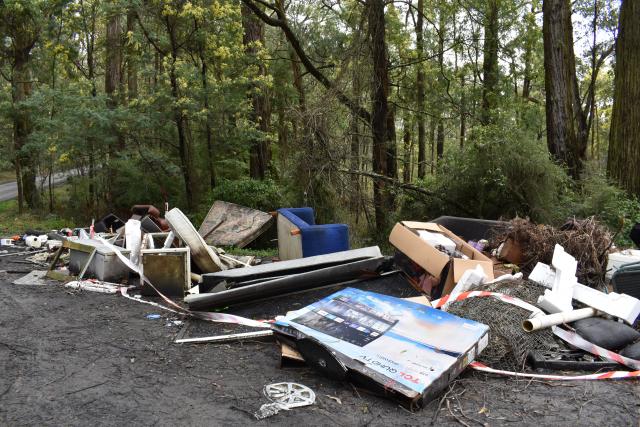A local community school is helping ensure their students take safely to the roads as they obtain their drivers licenses.
Cire Community School, with funds obtained from the Department of Transport, has spearheaded programs on car safety and prepared their students for their learner permit tests for about 10 years.
“We started off with running one program across the school for our students once a year and this year we were very fortunate to get the funding for four different programs to run across our four campuses,” Cire’s careers and pathways leader Karen Swankie said.
The Changing Gears program, which is set to move to the new Monbulk campus on Macclesfield Road in Terms 1 and 2 in 2024, offers young adults a facilitated program in which there is three days of face-to-face learning, hands on activities and case studies as well as role playing scenarios before participants sit their learners test on the fourth and last day.
“We bundle them all up, pop them in the bus and take them up to VicRoads… [who] set our young adults up so that they are able to sit their test with minimal distractions,” Ms Swankie said.
“They have the technology there to be able to listen to the questions being read out through them, and they have a time limit to be able to complete it and if they need extra support in regard to clarification they can easily just write them down, raise their hand and someone’s there to help them with that.
“We cater for all the different diverse needs that our cohort requires and that way we’ve had an extremely successful rate of completion; most of our students pass, I’d have to say nine out of 10. The ones who don’t pass, it’s usually nerves that get them on the day. So most of them come back either a week later or two weeks later and then re -sit the test and have success then.
On Friday 24 November, a group of students obtained their learner’s permits after taking part in the program.
“Changing Gears helped me understand the road rules better,” a student, who chose not to be named, said.
“I probably wouldn’t have got my learners without Changing Gears.”
Ms Swankie said students are “waiting” to participate in the Changing Gears program each year because the school is “known for doing it”.
“A lot of our young people when they meet with their teachers at the beginning of the year, they set goals and most of them set a goal of getting their learners [permit],” she said.
“For some people, they’re more than happy to jump online and do the online learning program, but others like the supported program that we can provide for them through Changing Gears.
“A significant milestone in most young people’s lives is that point where they are able to get their learners because then it’s the next step towards their independence.”
Cire Community School’s Looking After Our Mates (LAOM) program also teaches students about driving with friends and the impact drugs and alcohol have had on the road toll, as well as the Safer Vehicles program which helps young people decide on selecting a safe vehicle for their first car.
Under the 2023-2024 funding stream, students across all campuses will be able to access four LAOM sessions in March and three Safer Vehicles sessions in June.
“The young people go through a program where they’re able to learn how to understand the different safety ratings on vehicles and how essentially buying a more modern car is going to be safer for them than the old hand me down through the family,” Ms Swankie said.
“A lot of our young people [are] getting ready to be in vehicles with other people who are driving, so [learning] how to be a great passenger as well but also learning about when they are navigating and exploring their own pathway as well in regards to purchasing a car and owning a car and how to maintain a car.
“A lot of parents think buying or giving their kids or the young person a car that’s been in the family for quite a while, but solid and strong, is going to be safer when in actual fact it’s not always the case.”
Ms Swankie said the school has to apply yearly for the government funding, with “fingers crossed” it can continue to “come through” for it.
“I really don’t want to have to be the one that tells our students we don’t have the program running again next year; that would be pretty devastating,” she said.
“For a lot of our young people, they do not always have success in other areas of their life, so for them to achieve this as a significant milestone is just so rewarding; we get to go through the ups and downs and the nervousness and everything while we’re waiting to do the tests and we deal with the anxiety as it comes and goes and the jubilation as the results come through as well.”
Subject to funding, the school will look to provide the programs again in 2025.
“All of our students are able to benefit from the program,” Ms Swankie said.







